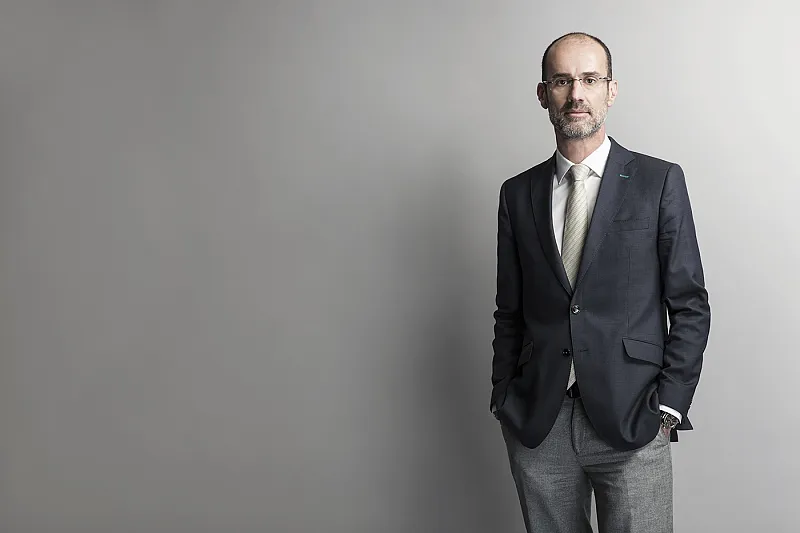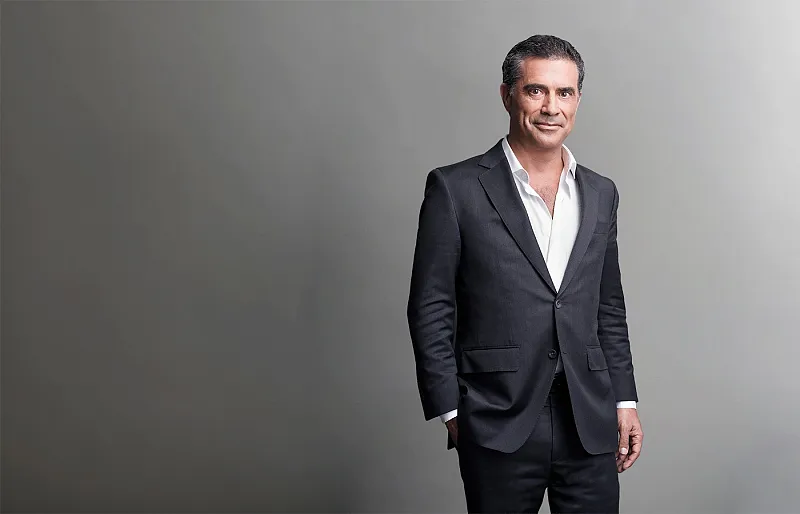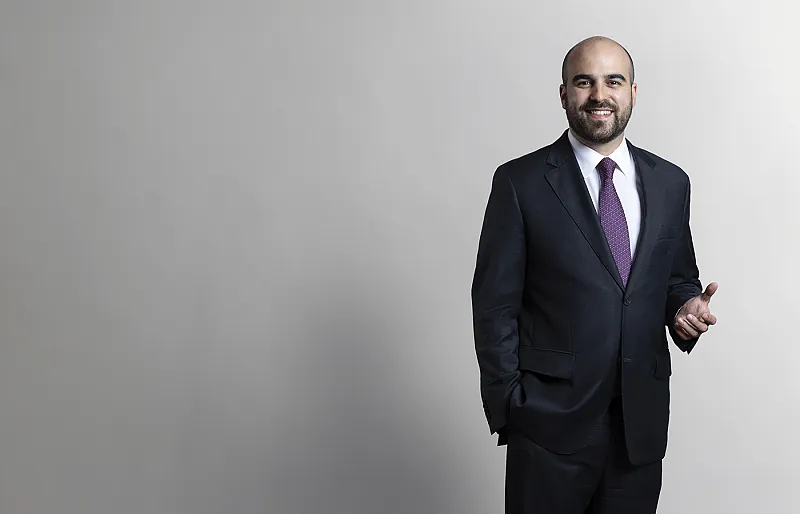In an exclusive interview, Carlos Coelho, Head of Innovation and Knowledge at Morais Leitão, explains the rationale behind the 'Firm for Tomorrow' concept and talks about the concrete initiatives that make it a reality in the firm's day-to-day operations.
From investing in artificial intelligence to developing innovative digital platforms, Morais Leitão has shown how the combination of technology, legal knowledge and proximity to clients is redefining the legal profession and preparing the sector for the challenges of the future.
Read the full interview below.
What is the rationale behind the 'Firm for Tomorrow' market positioning? And how does it manifest itself on a day-to-day basis?
Firm for Tomorrow' is an expression of our strategic vision and a statement that we want to lead. At Morais Leitão, we understand that the future of law requires more than a reactive attitude: it requires anticipation, innovation and the ability to predict and respond to constantly evolving dynamics.
This concept reflects our commitment to lead the sector and play an active role in the transformation of law in Portugal and in the markets where we operate, placing disruptive thinking, technology and operational agility at the heart of our work.
We believe that being a "Firm for Tomorrow" means aligning our services with the real needs of our clients, not only today, but also in the face of the challenges to come.
A concrete example of this approach is the series of one-to-one meetings we held with more than 30 clients this year. In these meetings, we brought together multidisciplinary teams from Morais Leitão and our clients, enabling us to share innovative solutions, understand their internal difficulties in depth and work together to find more effective and personalised approaches. This open and constructive dialogue has resulted not only in the optimisation of traditional services, but also in the discovery of new areas where we can add value, even in areas where we were not previously considered.
By bringing together the lawyers who know clients and their industries best with the relevant management functions - from legal, compliance, risk, strategy, business to technology - we have created a collaborative ecosystem that enables us to anticipate challenges, explore opportunities and develop solutions that are tailored to each organisation's context.
In summary, 'Firm for Tomorrow' is our commitment to continuous evolution, long-term value creation and close collaboration with clients, shaping the future of the legal sector and ensuring that we are always ready to respond, innovate and lead, whatever the challenges of tomorrow.
How does the firm foster a culture of innovation among its lawyers and staff, and how is this reflected in day-to-day practice?
For us, innovation is more than a concept - it's a fundamental part of our internal culture. This innovative mindset can be seen in the various projects that organically arise within the firm. We make a three-year commitment to anticipate emerging trends in each area of law and plan specific initiatives to develop them. These initiatives are often led by younger lawyers who bring fresh perspectives and dynamism to our practices.
We have also launched several internal innovation competitions open to all lawyers and staff. These competitions have been a rich source of ideas, resulting in various implementations that have improved both our organisation and the services we provide to our clients.
Recognising that there is always room for improvement, we are dedicating an entire floor of our Lisbon office to innovation, to be officially opened in January 2025. This floor is already operating in test mode and is divided into two main areas:
- Collaborative workspace: this is where our legal teams more dedicated to start-ups, technology, digital and intellectual property will share the space and work closely with our innovation team. This space is also available to those who wish to adopt a more relaxed and innovative working model, encouraging a collaborative, flexible and creative environment.
- Social space: This space is designed to bring people together from all 11 floors of our office, providing a place to meet and interact. We also have a lounge, fully equipped with state-of-the-art digital media and flexible furniture, dedicated to brainstorming, digital empowerment and disruption. We encourage everyone to make this space their own, creating and challenging society to implement new ideas and solutions.
This investment reflects our ongoing commitment to innovation, creating an environment that not only breathes innovation, but also provides the tools and spaces necessary for all members of society to actively contribute to our innovative future.
What initiatives have been developed to improve customer service and the operational efficiency of the company?
As I mentioned earlier, we asked our customers to tell us about their problems. This process allowed us to identify patterns and realise that there were gaps in the market in terms of business management, there is no ERP or CRM that has legal processes of this nature built in.
Traditionally, law firms do not operate with a product-oriented mindset, but when we receive several requests of a similar nature, it is clear evidence of a need that has not yet been addressed. That's what we identified and decided to develop the solution ourselves.
The management of companies, which is often done manually with tools such as Excel, which most lawyers avoid using, and which becomes even more complex in multi-office organisations, where bureaucracy forces the allocation of multiple human resources just to deal with the day-to-day management of the company.
So we created an innovative digital platform with legal workflows that support and automate corporate governance. With our platform, company secretaries gain efficiency and organisation, eliminate repetitive tasks, reduce bureaucracy, have a holistic view of the group and each individual company, have quick access to consolidated information and, above all, free themselves up for more strategic activities that add value to their work.
This process of designing a solution for our clients actively involved our specialist lawyers, which not only led them to reflect deeply on the firm's own internal processes, but also resulted in the adoption of the same solution created for clients in our internal practice, promoting greater efficiency and alignment between what we offer and what we use on a daily basis.
How is the firm using artificial intelligence to automate legal tasks and provide a faster response to clients?
There are two answers to this question, given the recent technological development of generative artificial intelligence.
First, we have been using artificial intelligence to automate various legal tasks, with the aim of increasing efficiency and providing a faster and more accurate response to clients. Since 2018, we have developed and implemented use cases that include:
- Contract review: we use AI to identify specific clauses, risks and inconsistencies in contracts more quickly and with a high degree of accuracy.
- Anomaly detection and risk identification: AI helps us identify unusual patterns or compliance issues in long documents, streamlining processes that previously required many hours of manual analysis.
- Extraction of legal elements: We automate the extraction of relevant information from large volumes of documents, allowing lawyers to focus on more complex analysis.
- Organising and analysing documents: to respond quickly to litigation or forensic investigations, we use AI tools to efficiently organise and analyse large volumes of data.
- Building semantic analysis models: we develop AI-based models that understand context and facilitate the search for relevant information within a given set of data, typically in the context of internal investigations.
Then, in November 2022, ChatGPT came along and the whole strategy and technology we were using had to be rethought. There was indeed a significant technological leap, but the real impact went far beyond that: the success of the applications lies in the simplicity and usability of the interface, and at that point everything changed. For the first time, lawyers could interact with machines in their own language, without the need for technical commands or complex barriers.
This advance has changed the way we look at access to knowledge. Where we used to base everything on a Google-type model (linear, targeted searches), we now need to rethink this access on a ChatGPT-type model (conversational, dynamic and intuitive). But this change has also brought challenges. The same creativity that allows AI to respond as fluidly as an authentic oracle can also generate false answers (known affectionately as "hallucinations"). In a sector as technical and precise as the legal industry, this is a significant and undeniable challenge with the potential to destroy reputations - just look at some recent cases.
We have taken on this challenge with determination, believing that we have two unique advantages over our direct competitors: 1) six years of trial-and-error experience with AI, giving us deep technical and strategic knowledge, but most importantly, lots of lessons learned; and 2) decades of accumulated curated knowledge, ensuring that the answers and insights we produce are as solid as our own quality standards.
With generative AI, what really sets a firm apart is not just access to technology and information - that's available to everyone - but the ability to take our own knowledge and turn it into real value for clients. Without that, all law firms will end up saying more or less the same thing.
And that's where we're different: while others are still adapting to change, we're already building the future. Because at the end of the day, it's not just about using AI - it's about how AI takes our professionals to the next level.


